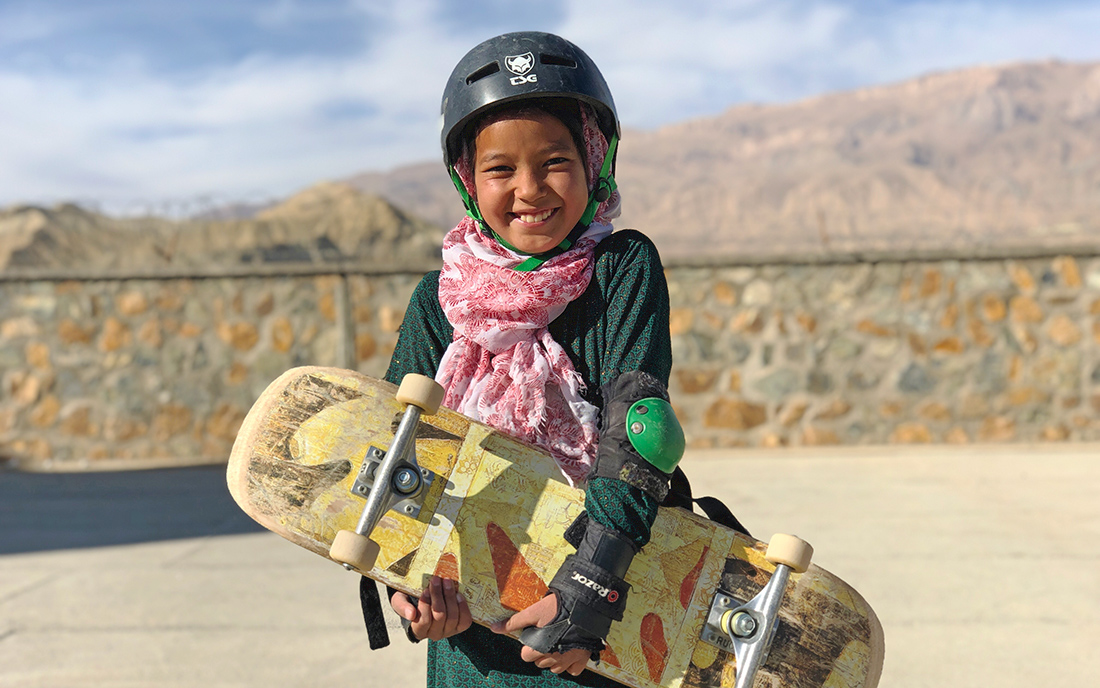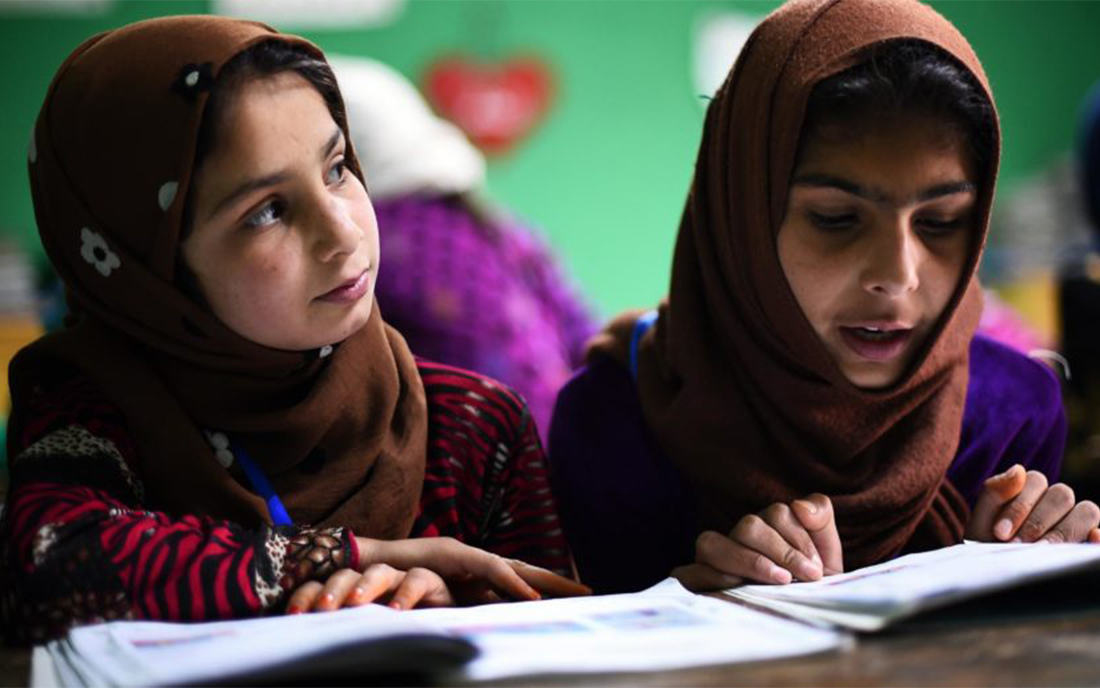Why Skateistan is all about education and female empowerment

Sport, education and female empowerment in challenging places like Kabul in Afghanistan. With Skateistan, Oliver Percovich has built an inspiring nonprofit which uses sports as a force for good.
It all started with a trip to Kabul in 2007, where Oliver’s girlfriend at the time was working in development cooperation. Oliver brought some more skateboards with him, thinking that he could make some skateboard buddies in the city. This was a very lucky decision, as it marked the starting point for building an organization where skateboarding is a leverage to empower children and get them (back) agto school.
Oliver was born in Australia, his mother is German. In his childhood, he lived for a time in Papua New Guinea. He knows what it means when children don’t have access to (quality) education. When starting Skateistan, it never was just about skateboarding. The boards turned out to be a powerful tool to gain access children in deprived areas who lacked access to school and who’d benefit enormously from the life skills which the Skateistan team could provide.
Today, Skateistan is an award-winning, professional non-profit based in Berlin. Their skateboard schools in Afghanistan, Cambodia and South Africa work with more than 3,000 children and youth, just over half girls. Skateistan provides children with access to school, teaches fairness, tolerance and gender equality alongside sports, and lives up to its values.

Even though Skateistan is so successful, Oliver maintained to be a humble person who is rarely seen in the image gallery of the organization. Skateistan is not about a single leader or founder, it is about the many children whose lives are positively affected, explains Sophie Friedel, one of the early companions of Skateistan, who now develops therapeutic skateboarding offerings for youth and adults in Freiburg, Germany. Skateistan can also be perceived as an alternative model to many large-scale development aid projects, of which there are many in countries like Afghanistan. Sometimes, Sophie argues, there is the impression that the opening ceremony of a new project is more important than the social impact for the expected beneficiaries. Skateistan works at the grassroots level. With help of a cool street sport – skateboarding – the team gains access to children who’d they could not reach otherwise.
Two aspects Sophie tells us about her time in Kabul are eye-opening. They stand for Skateistan’s thinking “out-of-the-box”.
Many children did not have access to school
When Oliver came to Kabul, many children did not have access to school even though they would have loved to go to school. The problem was very simple. To register for school, you had to have a passport. The people in the city had one. Many who had fled the countryside where the Taliban ruled, did not have one. The way back to the village to get the necessary papers was too dangerous. As a consequence, many children lived on the streets, selling chewing gum or water to policemen.

It was at this point that Skateistan defined one of its principles: “You can skateboard if you go to school”. To be able to provide access to school, the team raised funds to build a school where all children could go, without or without papers. The demand was enormous.
The combination of skating and education has proven to be a success. Because through sport and recreation, Skateistan reaches many children with whom they would otherwise not come into contact. They would otherwise never have found out about the educational opportunities.
Why Skateistan built the first indoor skateboard park early on
Building an indoor skateboarding park, when every cent is scarce, sounds very unusual at first sight. However, it had its own logic. The team in Kabul had noticed that girls of twelve or thirteen mostly stopped attending the skate sessions outside. They were scared of being harassed. Young women on skateboards is still too unusual a sight for people in a city where girls are only served at the kiosk when there are no men in sight. Indoor opportunities made a major difference in raising the girl’s participation.

«I would say that my life really changed when I came to Skateistan. I started to see that people would look up to me and that I could help others by showing a good example.» Shabnam, engineering student at Balkh University in Afghanistan
Even though the society is very traditional, Sophie is very positive about the her personal encounters with the girls’ families. The support for them to do sports and go to school was enormous. And the public authorities also allow Skateistan to establish its own educational institutions. One reason may be that Skateistan is a great example of local empowerment. The Skateistan team in Afghanistan is made up entirely of local staff and volunteers for a long time already.
Back to the skateboard hall. Such a hall, Sophie adds, is of course also enormously practical. In Kabul, it’s sandy everywhere outside. And it’s just not good to ride on sand. Sometimes, female empowerment objectives and having fun go nicely together.
You can find out more about Skateistan and how you can support the initiative through GOOD here.
Questions, criticism, suggestions? Write to us!
Dr. Andreas Renner, Co-Founder GOOD: andreas@good-search.org

